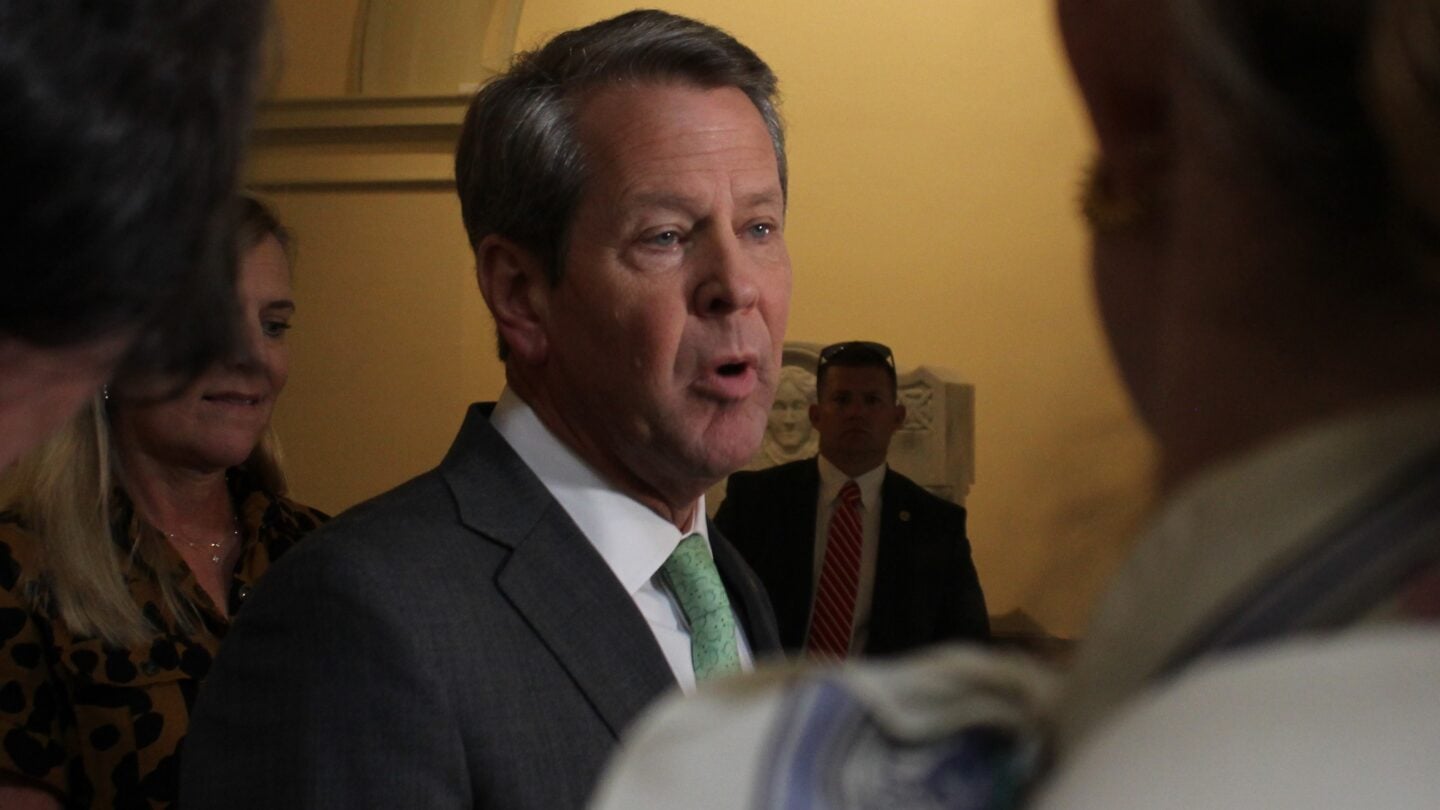A day after his Democratic rival for governor, Stacey Abrams, expressed her support for broadening gambling options in Georgia, Gov. Brian Kemp maintained an essentially hands-off approach to the subject.
“This is the thing about my position on that: it hasn’t changed,” Kemp told reporters at the state Capitol Wednesday. “I’m at the same place I’ve always have [been]. To be able to do that here, it’s gonna take a constitutional amendment. It doesn’t really matter what the governor thinks, you can’t veto a constitutional amendment.”
Georgia voters approved a referendum in 1992 creating the Georgia Lottery. Revenues from the lottery go to help fund education in the state.
There has been bipartisan support to expand gambling in Georgia, including online sports betting, casinos and horse racing tracks. But that support hasn’t been enough to get the two-thirds majority needed in the legislature to set up another referendum to further amend the Constitution.
Some Republicans in the Georgia General Assembly have expressed their moral objection to gambling, while some Democrats are concerned with where the revenue from expanded gambling would go.
The stalemate in Georgia comes as dozens of states, including neighboring Tennessee, have legalized online sports betting in the aftermath of a 2018 Supreme Court decision that allowed all states to do so.
Kemp says Georgia hasn’t felt the effects of lagging behind other states when it comes to expanded gambling.
“What we have done is focused on creating great economic opportunity regardless of whether we have a casino or not,” Kemp said. “You can see our track record over the last two years and really over the last decade in Georgia has been one of bringing that opportunity for our citizens. That’s what I’m focused on.”
On Wednesday, Kemp and economic development commissioner Pat Wilson announced economic development totals for FY 2022. They included $21.2 billion in investments, 51,132 jobs created and 358 new projects, according to numbers released by the state.
“These numbers are both a high-water mark and a new challenge,” Kemp said.
Wilson highlighted Georgia’s film industry, which his department says generated $4.4 billion in economic activity in the state last year. The state offers handsome tax breaks to film companies to do business in Georgia.
Wilson noted the bounce back of the tourism industry from the darkest days of the pandemic. He also put a spotlight on the largest economic development deals in state history, both signed in the past year. Those agreements will bring Rivian and Hyundai electric vehicle plants to Georgia in coming years.
“Really what we’re doing here, the things you see, the things we talk about, it points to an even brighter future for communities and families across the state,” said Wilson.









